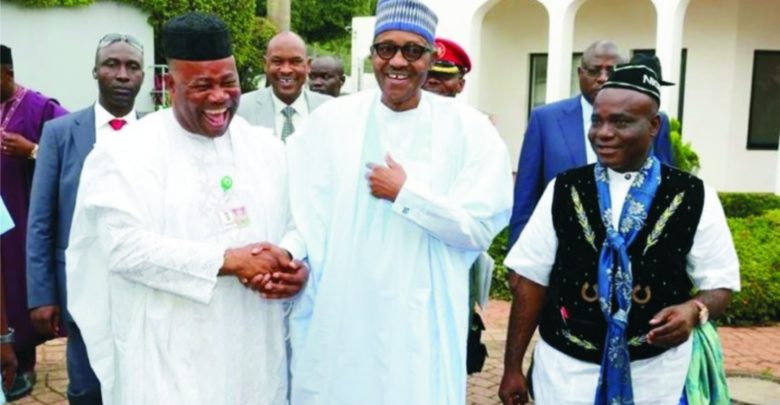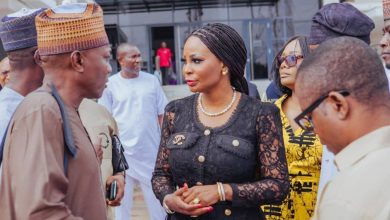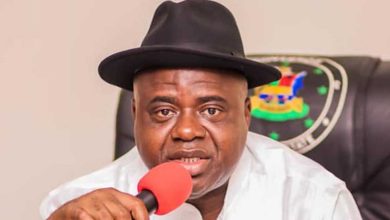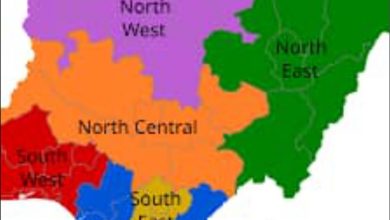
In a letter read at plenary by the Senate President, Senator Ahmed Lawan, on January 28, 2020, President Buhari c his intention to reconstitute the board of the Niger Delta Development Commission (NDDC) which had suffered controversial delay and curious assumptions to that effect.
The letter read in part: “The Senate may wish to note that the dissolution of the board of the NDDC, an interim management team was set up to manage the affairs of the commission before a new board was composed and sent for Senate confirmation. The Senate is invited to note that while the composition and Senate confirmation of the appointment of the board was ongoing, I had directed that the forensic audit of the Commission be carried out which is being overtaken by the constituted interim management team”.
The letter continues: “Based on this and in order to allow for uninterrupted process of the forensic investigation, the board appointment confirmed by Senate had to be on hold to allow the team continue to manage the commission pending the outcome of the forensic audit. Thereafter a new board of the commission will be recomposed for the confirmation by the Senate”.
But Nigerians are worried about the melodramas that have characterised the matter especially on the sudden and controversial emergence of the Interim Management Committee. Recall that on Tuesday, October 29, 2019, President Buhari had, through the Office of the Secretary to the Government of the Federation (SGF), manned by Boss Mustapha, forwarded 16 names of nominees for the new Board of the NDDC to the National Assembly. It was therefore curious that in the evening of the same day, October 29, 2019, the Minister of Niger Delta Affairs, Sen. Godswill Akpabio, set up a 3-man Interim Management Committee (IMC) for the same board.
The protem set-up comprised Dr. Joy Gbene Nunieh (Acting Manging Director); Dr. Cairo Ojougboh, Acting Executive Director, Projects; and Chief Ibanga Bassey Etang (Acting Executive Director, Finance/Administartion). The former Senator and Governor of Akwa Ibom State had argued that the essence was to give the IMC “an enabling environment” to manage the board for about a period six months, during which the forensic audit of the NDDC shall have been completed.
RELATED: Triumph of IMC over NDDC Board- Are The Games Over?
In the spectrum of the federal parliamentarians, Akpabio was too presumptuous and his haste akin to toppling the apple cart. So, the Senate on Tuesday, November 5, 2019 successfully screened the 15 nominees out of the 16 earlier forwarded to it by President Buhari and empowered the new board to immediately take charge. The names dropped to 15 because Dr. Joy Nunieh representing Rivers State, out of perceived anger that the Senate was acting against her interest and relishing position on the IMC, was said to have defiantly shunned the screening even when, according to the Chairman of Senate Committee on NDDC, Sen. Peter Nwaoboshi, an invitation was respectfully extended to her like it was to others concerned.
The Senate President, Ahmed Lawan, had dismissed the IMC as null and void on the logic that the law that set up the NDDC does not recognize any interim arrangement once a board is in place. Lawan cleared clouds of fears on the minds of two fellow senators, the Senate Minority Leader, Enyinnaya Abaribe and Ike Ekweremadu on the likely fate of the Interim Management Committee now that a board has been properly instituted. The answer was instant and logical: “With the completion of this process of confirmation, I am sure that any structure that exists in the NDDC is vitiated. I don’t think we have anything to worry about because this is one thing that is clearly established by the law”, Lawan had elucidated with unshaken tone of finality.
In the same vein, the House of Representatives on Thursday, November 14, 2019 summoned Sen. Akpabio to immediately dissolve the IMC. Ossai Osssai (PDP, Edo) had lighted the flame with a motion that the existence of the IMC contravenes Section 8 of The NDDC Act that allocates the management and administration of the NDDC to a governing board. The resolution was unanimous, irrevocable, enforceable.
Since then, there have come expressed and pent-up feelings. Some have launched the argument that the Niger Delta Minister’s IMC could hardly have emerged without some conspiracy on the power-chain; otherwise, as they further contended, it would not have been tolerated to the extent it was, with befuddling political diplomacy.
RELATED: Shocker: NDDC Will Never Work
Some others have speculated that part of the reasons for the observable disappointments on faces or the heated exchanges of words amongst the power brokers was that some of them were sidelined in the choices or nominations of members into the NDDC new board. For instance, writing on the topic, “Revealed – How Akpabio, Omo-Agege Fell Out Over NDDC Board Appointments”, the Nation Newspaper of Saturday, November 16, 2019, tried to join the edges in creating a montage of what allegedly must have transpired behind the scene.
In expectation and practice, The NDDC Act 2000 in section 1 (1) establishes the Commission; while section 2 (1)C creates a Governing Board to oversee and run the affairs of the Commission, which only the President has the power to appoint and inaugurate after due screening and confirmation by the Senate in consultation with the House of Representatives as encouraged by section 2 (2)a of the Act. Categorically, the Act does not make any provision for the President to delegate his power to control, supervise or direct the affairs of the Commission to any Minister, individual or groups, Sections 7 (3); section 23.
Maybe it is also expedient to state that the NDDC Act does place the NDDC under the armpit of the Minister of Niger Delta. The Ministry only has a responsibility to liaise with the Commission. This, in the eyes of the law, is to checkmate duplication or overlapping of duties that no one may be held answerable. But there are slight changes and provisions with regards to establishments like the Universal Basic Education Commission, UBEC Act 2004; Tertiary Education Trust Fund Act 2011, etc. Of course, Members here are not required to be screened by the Senate.
However, after months of hostilities between the Interim Management Committee and the Presidency on one hand and the Senate and House of Representatives on the other side, President Buhari finally stepped into the fray with a statement on Thursday, December 19, 2019, conveyed by the Special Adviser on Media and Publicity to the President, Mr. Femi Adesina, that everything about the new NDDC Board had to be suspended tentatively until, by that directive, a new board was recomposed.
By that action, it meant that the President, for the first time in about three months, openly and officially, validated the status and action of the IMC. According to the release, the supervisory power over the commission will continue to rest with the Minister of Niger Delta Affairs, Sen. Godswill Akpabio. Although the statement was not exact about the lifespan of the stop-gap committee, it was however disclosed that the IMC would function until the forensic audit of the accounts and activities of the commission, which the President ordered earlier in the year, shall have been completed.
That singular pronouncement promptly overrode both the earlier reservations and defiance of Members of the National Assembly that saw them refused to acknowledge the Dr. Joi Nunieh-led IMC as a legal and functional entity and also turned down the 2020 budget of the NDDC. Although the House of Representatives later rescinded its position and agreed to look into the budget, it was as good as having done nothing because it emerged from the meeting with stiffer conditions the board needed to fulfil before the said budget could be appraised.
The original list for the NDDC Board consisted of the former deputy governor to former governor of Edo State, Adams Oshiomole, Dr. Pius Odubu as Chairman; Bernard Okumagba (Delta State), Managing Director; and Otobong Ndem (Akwa Ibom State), Executive Director Projects; and Maxwell Okoh (Bayelsa), Finance and administration. Others on the list are Jones Erue (Delta); Victor Ekhatar (Edo); and Joy Nunieh (Rivers State); Nwogu Nwogu (Abia); Theodore Allison (Bayelsa); Victor Antai (Akwa Ibom); and Maurice Effiwatt (Cross River). Included also are Olugbenga Edema (Ondo); Uchegbu Kirian (Imo); Aisha Murtala Muhammed (Kano), representing the North-West area; Ardo Zubairo (Adamawa), representing North-East zone; and Ambassador Abdullahi Bage (Nasarawa), for North-Central geo-political zone.
Like everything associated with this matter, there are rumours and lingering suspense that the new list may not have some names that were on the original one. Could this be courting another phase of crisis with the stakeholders and supposed benefactors of faces on the former structure? Or the speculations must be taken exactly for what they were? But there is need for circumspection against anything that may further delay the board.




